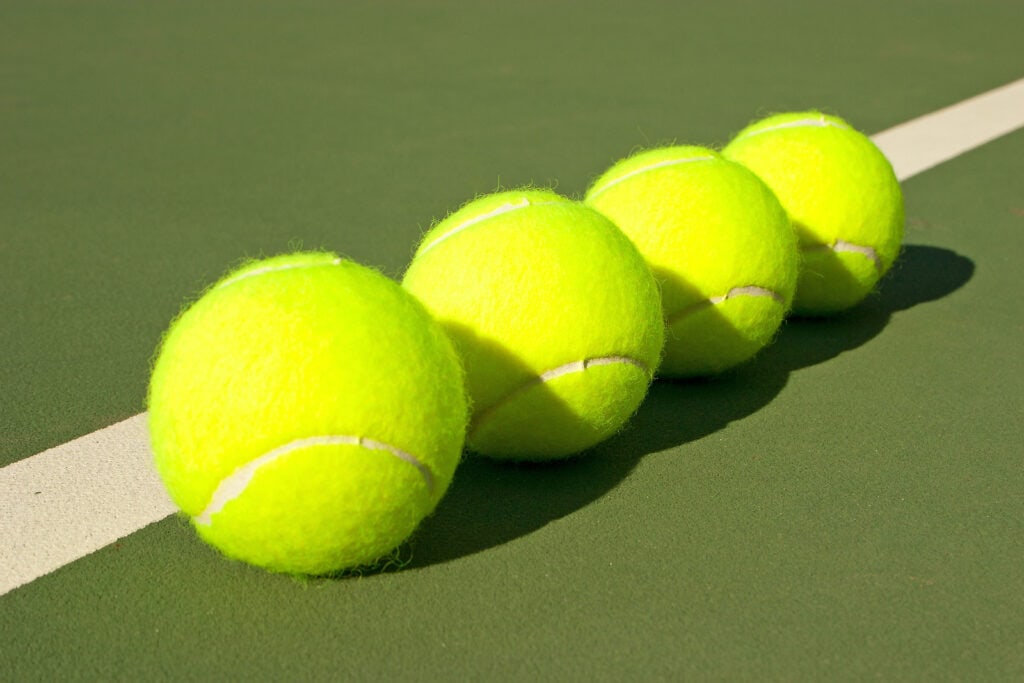There are many different types of tennis balls, but the two main types of professional play are regular duty and extra duty. As a player, you might not notice a difference in performance between these two kinds of balls because both perform well on all court surfaces. However, there is one major difference: price. Regular duty balls cost less than extra-duty balls and will last longer due to their higher durability rating.
The price difference can’t be ignored when purchasing your next set of tennis balls! This article will explore the differences between regular and extra-duty tennis balls so that you can make an informed decision before buying your next set of equipment.
Extra Duty Tennis Balls
Extra-duty balls are made from a stronger felt and have a higher thread count. Extra-duty tennis balls will last longer than regular-duty tennis balls because the felt is thicker, which means it won’t wear down as quickly. The downside to extra-duty balls is that they don’t bounce as well as regular-duty balls due to the extra weight.

Regular Duty Tennis Balls
Regular-duty tennis balls are made from a thinner felt and have a lower thread count. This makes them less durable than extra-duty balls, but they bounce better because of their lighter weight. The downside to regular-duty balls is that they don’t last as long as extra-duty balls.
Extra Duty vs Regular Duty Tennis Balls: Which One is Better?
Regular-duty balls have a lower thread count, meaning they are lighter. The lower weight makes them fly better. However, extra-duty balls last longer because the higher thread count resists wearing better. In terms of performance during a typical match, regular duty balls will be more durable, but they will fly better. Extra-duty balls will be less durable, but they will have a slightly higher bounce.
It’s a tie! It really comes down to a player’s individual preferences and financial situation. If you play three times a week or more, it might be worth your while to purchase extra-duty tennis balls because they’ll last longer, even though they don’t bounce as well. However, if you only play a couple of times a month, regular-duty tennis balls will be just fine and will save you some money in the process!
Whichever type of ball you choose, make sure to practice with them before playing in an important match. You’ll want to get used to the way they fly and bounce so that you can make the most of your game!
Other Types of Tennis Balls
There are many other types of tennis balls on the market, but three types, in particular, are pressureless balls, high-altitude balls, and junior foam balls.
Pressureless Tennis Balls
Pressureless tennis balls are made without any air inside them, which gives them their unique name. Because there is no air pressure pushing against the surface of the ball, they don’t bounce as well as traditional tennis balls. However, pressureless balls do have some benefits over traditional tennis balls. For example, they don’t deflate when they’re punctured, and they are great for practice sessions with a ball machine due to their durability.
High-Altitude Tennis Balls
High-altitude tennis balls are designed for play at high altitudes, such as in the mountains. The higher altitude causes the air pressure to be lower, which makes traditional tennis balls fly too fast and bounce too high. High-altitude tennis balls solve this problem by being made with a heavier cover and a less bouncy core.
Junior Foam Balls
Junior foam balls are designed for children who are still learning how to play tennis. The balls are smaller and don’t bounce as much as regular-size tennis balls, which makes it easier for children to see them and hit them with their rackets. There is also a foam core inside the ball, which means it won’t bounce back very far once it hit the ground.
Conclusion
Now that you know the difference between regular-duty and extra-duty tennis balls, you can make an informed decision about which type of ball is best for you! Regular-duty balls are ideal for players who play a couple of times a month, while extra-duty balls are better for players who play three times a week or more. Remember to practice with both types of balls before playing in an important match!
